PRODUCTS
CONTACT US
Ningbo Nide International Co., Ltd.
一一
· Contact person:Jack Zeng
· Mob/Whatspp/WeChat:0086-13738869026
· Email:emarketing@nide-group.com;marketing4@nide-group.com
· Add:No. 169, Wohushan Road, Daqi Subdistrict, Beilun District, Ningbo, China
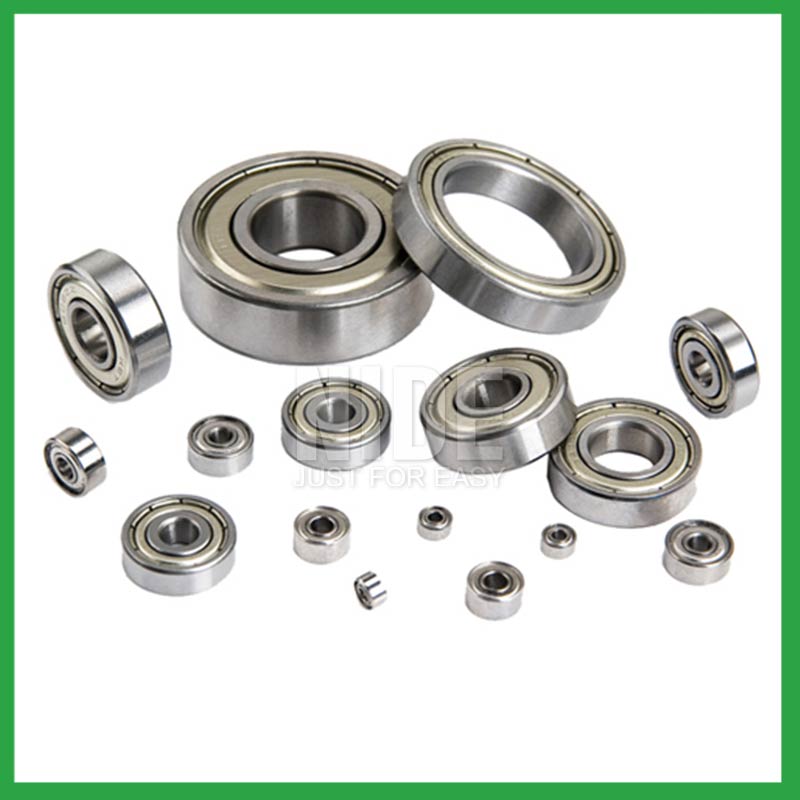
Nide team could manufacture ball bearing as per customer’s drawing and samples.
If customer only has samples, we could also design drawing fo r our customer.
We also provide customized service.
Our ball bearing is widely applied the different industrials.
Haishu Nide International Co., Ltd is one of the leading bearing manufacturers in China. We are a well-known supplier of high-quality carbon brush,fan,commutator,thermal protector,magnet,ball bearing,insulation paper. Our products are widely used in fields such as air condition motor,single and three phase induction motor,electric automotive motor,washing machine motor,fan motor,water pump motor,BLDC motor. We are proud to provide customers with the expected product knowledge, applied professional knowledge, quality control, and consistent reliable service.
We have modern computerized machinery and equipment to produce high-precision bearings. Our company is also equipped with complete chemical and metallurgical laboratories as well as standard room facilities.Nide has offices in India, Brazil, Korea, Turkey, and Argentina, good sales and service net work allow us to access and offer service to customers over the world easily and promptly.
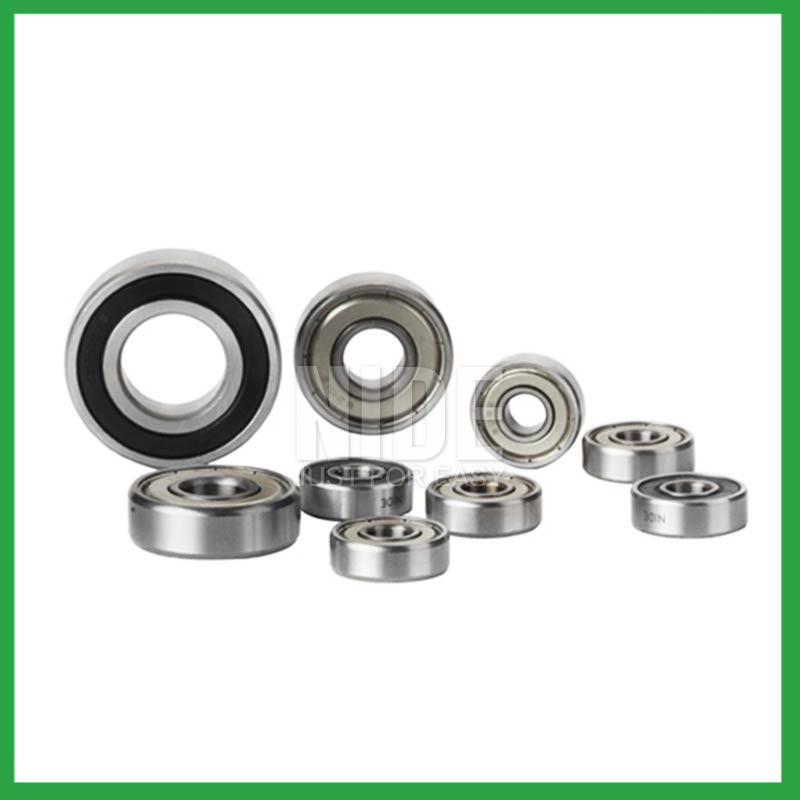
| Parameter | Information |
|---|---|
| Product Name | ball bearing rockwell hardness |
| Brand Name | NIDE |
| Place of Origin | Ningbo,Zhejiang,China |
| Material | stainless steel, etc. |
| Structure | Deep Groove |
| Color | Customized Color |
| Delivery Time | 5-7days |
| Port | Ningbo/Shanghai |
| Export region | Oceania,Europe,America |
| Export Country | India,Brazil,South Korea,Greece,Bangladesh,Micronesia, Federated States of,Saint Pierre and Miquelon,Tanzania...etc |
| Application | food processing machinery,fan electric motor, etc. |
| OEM/ODM | Yes |
| Size | Customized size |
| Stock | In Stock |
| Feature | Strong carrying capacity,Good wear resistance...etc |
| MOQ | 10 pieeces(Specific according to the model) |
| Certification | ISO9001,CE-insulation paper inserting machine,CE-stator coil lacing machine,etc |
| Supply Ability | 100000-500000 Piece/Pieces per Month |
| Lubricate | Oil Grease |
| Packaging Details | Suitable for sea transportation |
| Lead time (days) | 15-20 (To be negotiated) |
Please note: The above table data is for reference only. For specific information, please contact us.
ball bearing rockwell hardness can be used in household appliances, such as washing machines,mixers,refrigerator door leaf wings,vegetable cutters, etc; It can also be used in industrial fields, such as motors,weighing machines,weaving machine spindle bearings,bearing cabinets, etc.
During the disassembly process, the outer shell should be kept intact to avoid unnecessary damage;
When replacing installation components, attention should be paid to the accuracy of the support components to prevent deformation;
During the disassembly process, attention should be paid to protecting the surface quality of the ball bearing to ensure its performance;
During the operation, attention should be paid to removing surface dust to ensure the quality of the ball bearing.
Ball bearings have many advantages, making them highly competitive in the market.
Firstly, they are very durable and have good wear performance, making their service life longer than many other types of bearings.
Secondly, they are easy to install and can provide low friction performance in various applications.
Thirdly, they require a relatively low level of maintenance, making them cost-effective.
In addition, compared to many other types of bearings, their purchase cost is relatively low, making them an economical choice.
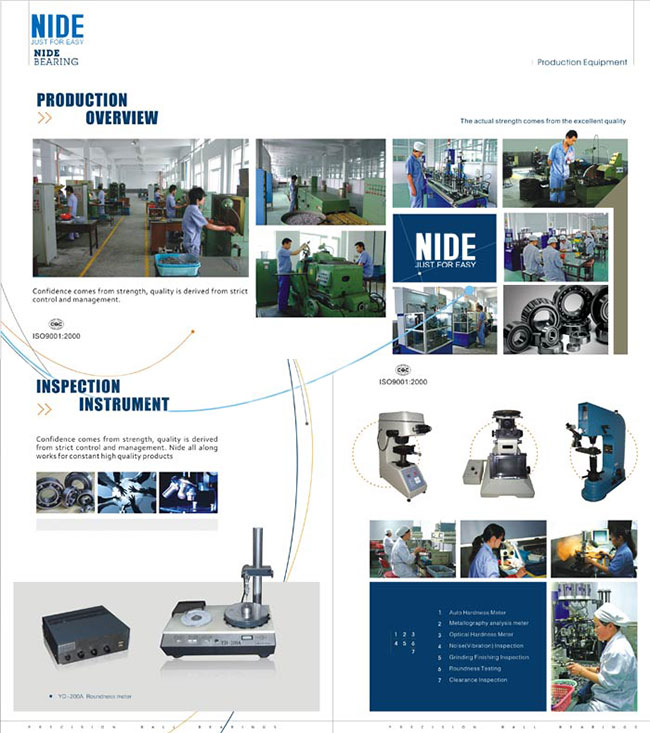
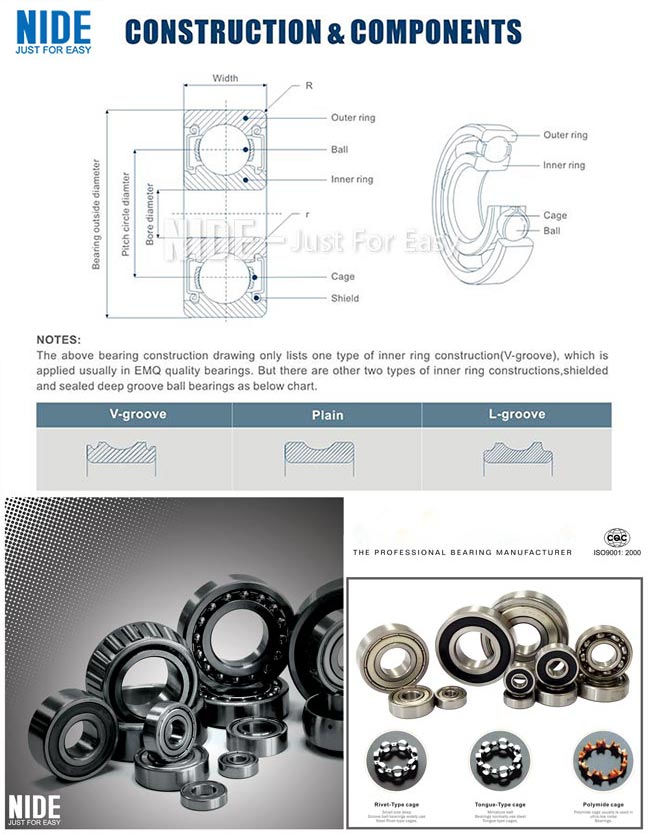
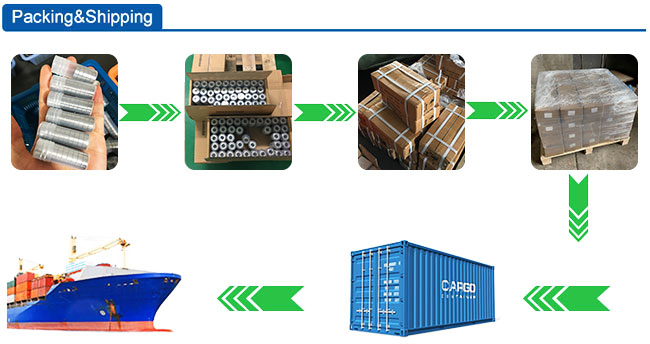
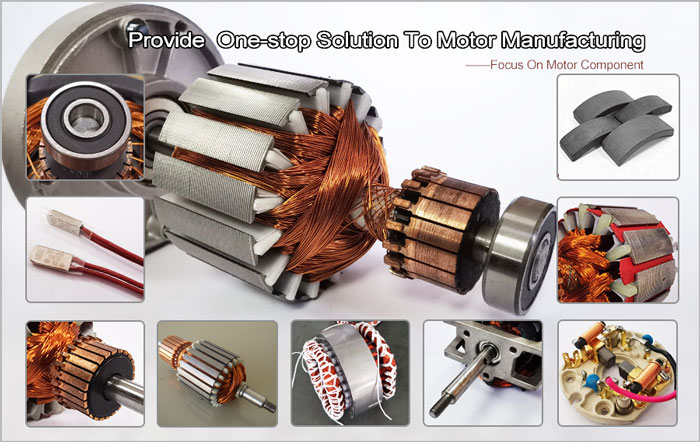
ball bearing rockwell hardness---FAQs Guide
2.Are there miniature ball bearing rockwell hardness designed for use in precision instruments and small-scale mechanisms?
3.As a ball bearing rockwell hardness manufacturer,What is your payment method?
4.How do cage materials and designs impact ball bearing rockwell hardness performance and stability?
5.How do ball bearing rockwell hardness handle radial loads, axial loads, and combined loads, and what are their load-carrying capacities?
6.As a ball bearing rockwell hardness manufacturer,How Can We Guarantee Quality?
7.How do manufacturers address concerns related to bearing noise and vibration in sensitive equipment?
8.What are the ball bearing rockwell hardness product skill training options?
9.Can ball bearing rockwell hardness be customized with special coatings or treatments to meet specific industry standards or regulatory requirements?
10.What are the considerations for choosing between open, shielded, or sealed ball bearing rockwell hardness in specific applications?
11.What is the typical noise level associated with ball bearing rockwell hardness, and how are noise-reduction techniques applied?
12.Can ball bearing rockwell hardness operate in high-temperature environments like industrial ovens or furnaces, and how are they protected from heat-related damage?
13.What is the significance of ball bearing rockwell hardness lubrication, and how does it affect bearing lifespan and performance?
1.Are there ceramic ball bearing rockwell hardness designed for specific applications requiring high-temperature or corrosion resistance?
Ceramic ball bearing rockwell hardness are a special type of bearing made of ceramic materials, offering superior wear resistance, corrosion resistance, and high-temperature performance. They provide excellent performance in applications requiring high speeds, high temperatures, and resistance to corrosion.
2.Are there miniature ball bearing rockwell hardness designed for use in precision instruments and small-scale mechanisms?
Miniature bearings, despite their small size, play a significant role in various industries and applications. These compact powerhouses, typically measuring less than one inch in outer diameter, offer exceptional precision, durability, and reliability. Miniature bearings find extensive use in precision instruments and robotics.
3.As a ball bearing rockwell hardness manufacturer,What is your payment method?
We accept T/T, PAYPAL or Western Union, credit card or via ALIBABA Assurance order.
4.How do cage materials and designs impact ball bearing rockwell hardness performance and stability?
As the core component of rotating machinery, the performance and reliability of high-precision ball bearing rockwell hardness directly affect the overall performance and life of the machine and instrument . The increase of the rotational speed will aggravate the collision and friction of the cage, which will lead to the decrease of the rotational stability of the cage. The unstable movement of the cage could in turn lead to more severe collision and wear, thus reducing the life and reliability or even the destruction of the bearing.
Therefore, it is very necessary to study the cage stability to guarantee the stable operation of bearings. However, the dynamic characteristics of the cage is very complex. Parameters such as load, rotational speed and lubrication may affect its kinematic and tribological conditions, which leads to the change of its motion behavior.
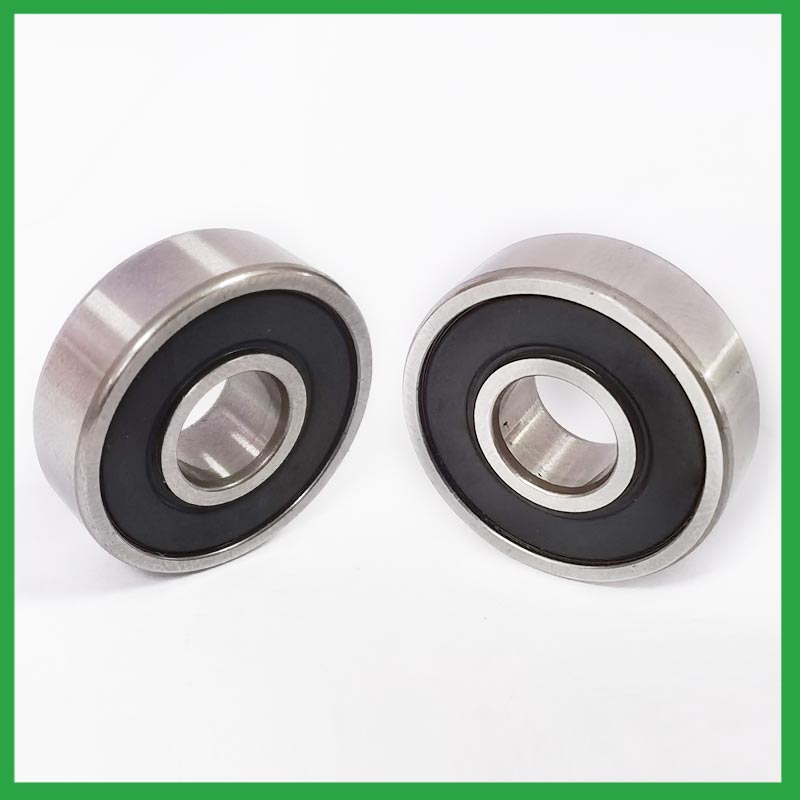
5.How do ball bearing rockwell hardness handle radial loads, axial loads, and combined loads, and what are their load-carrying capacities?
The type of bearing used also varies between these loads. While deep-groove ball bearing rockwell hardness are better equipped to handle radial loads, thrust ball bearings are designed for axial loads. However, it's essential to note that most bearings, such as angular contact ball bearings, can handle both radial and axial loads.The Bearing Static Capacity, Co, is the maximum load that can safely be applied to a non-rotating bearing that will not cause subsequent bearing operation to be impaired. It is based on calculated contact stress at the center of the most heavily loaded rolling element where it contacts the Inner Race.
6.As a ball bearing rockwell hardness manufacturer,How Can We Guarantee Quality?
Always a Pre-production Sample Before Mass Production;Always Final Inspection Before Shipment.
7.How do manufacturers address concerns related to bearing noise and vibration in sensitive equipment?
From a ball bearing rockwell hardness manufacturing perspective, a low noise or vibration rating is achieved by paying attention to the surface finish of the raceways and balls, their roundness, and selecting the correct cage design. Finely filtered low noise greases can also be used to reduce vibrations.
8.What are the ball bearing rockwell hardness product skill training options?
Quality comes from being controlled rather than be done. On the basis of the escalating production equipment and optimized process, Nide spare no efforts and keeps improving for quality control. Quality assurance covered with system, technology and human resources are in full swing.
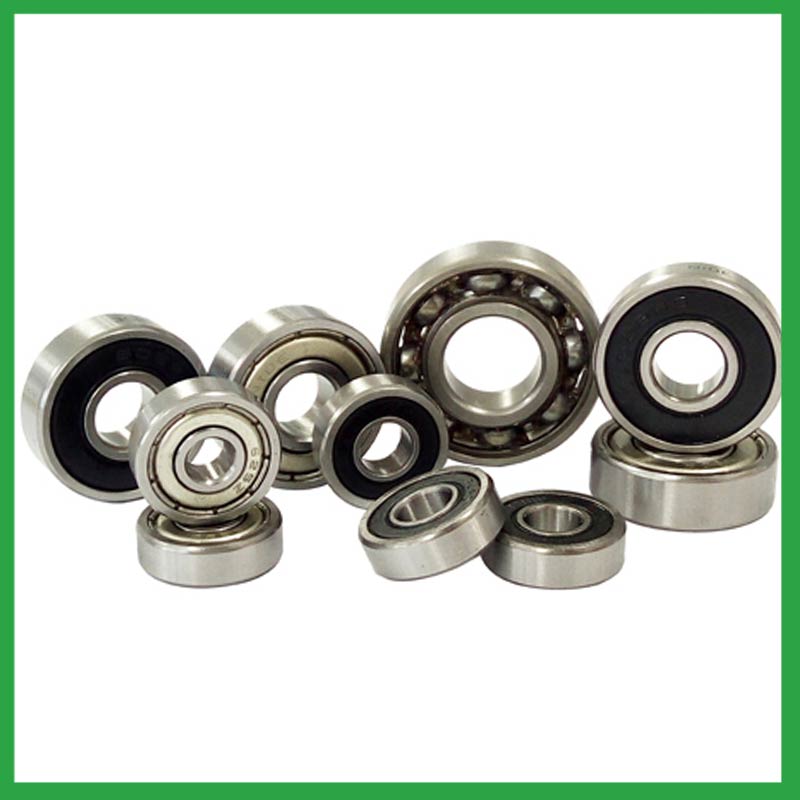
9.Can ball bearing rockwell hardness be customized with special coatings or treatments to meet specific industry standards or regulatory requirements?
Yes, ball bearing rockwell hardness can be customized with special coatings or treatments to meet specific industry standards or regulatory requirements.
1. Corrosion-resistant coatings: These coatings are used to protect the bearings from corrosion caused by exposure to moisture, chemicals, and other corrosive substances.
2. High-temperature coatings: These coatings are used to improve the thermal stability and performance of bearings in high-temperature environments.
3. Food-grade coatings: These coatings are specially designed for applications in the food and beverage industry, where bearings come into contact with food, beverage, or pharmaceutical products.
4. Anti-static and non-conductive coatings: These coatings are used to dissipate static electricity, which can cause damage to electronic components.
5. Specialized lubrication treatments: Bearings can be treated with specialized lubricants that meet specific industry standards or regulatory requirements.
10.What are the considerations for choosing between open, shielded, or sealed ball bearing rockwell hardness in specific applications?
While sealed bearings offer superior protection and maintenance advantages, shielded ball bearing rockwell hardness can be more suitable in situations where minimal friction and operating temperature are crucial. It's essential to assess the operational environment and demands before making a selection.
11.What is the typical noise level associated with ball bearing rockwell hardness, and how are noise-reduction techniques applied?
To measure in accurate way the ball bearing rockwell hardness noise under rotation during their manufacturing process is a key activity particularly in the production of medium, small and ultra-small deep groove ball bearings. This capability in bearings noise analysis has become the real distinguishing element between a standard bearings noise equipment and a superior class one.
The various types of vibration and sound in rolling bearings can be grouped in four main categories: structural, manufacturing, handling and other. The structural vibration consists mostly of race, click, squeal and cage noise: it can be continuous or intermittent depending on specific cases. The manufacturing vibration is instead related to the waviness noise generated by the geometrical imperfections of inner and outer ring and of rolling elements, being always continuous in nature. The so-called handling vibration is normally associated with flaw and contamination and is generating – in most of the cases – irregular noise. Then there are other types of vibrabition that include noise generated by sealing and lubricant (irregular) or by runout (continuous).
12.Can ball bearing rockwell hardness operate in high-temperature environments like industrial ovens or furnaces, and how are they protected from heat-related damage?
ball bearing rockwell hardness are capable of working at temperatures up to +842°F (+450 °C). Special lubricants, seals and coatings make this possible by protecting the ball bearings from heat damage.
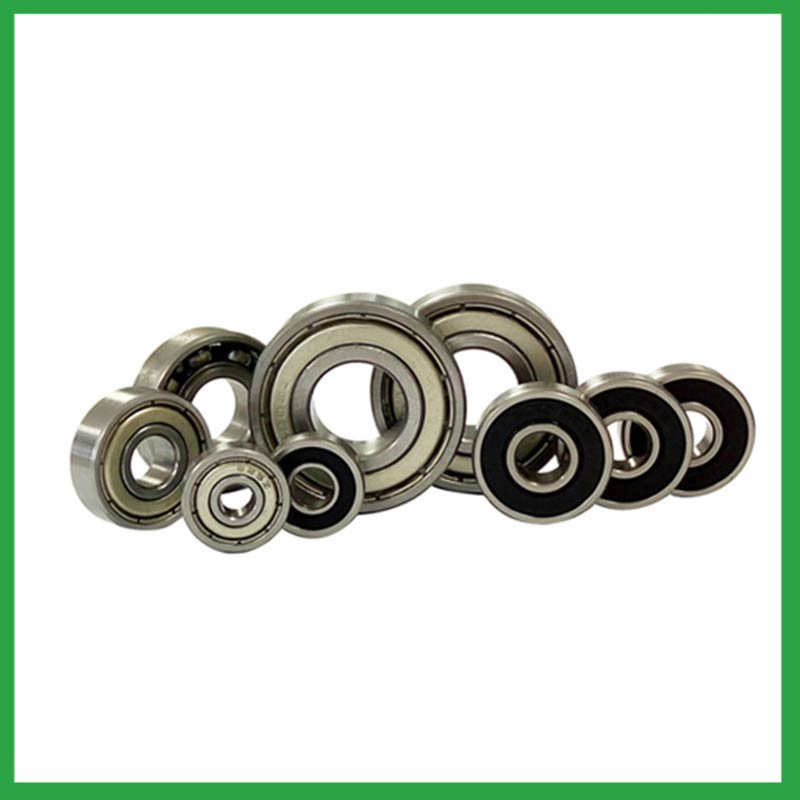
13.What is the significance of ball bearing rockwell hardness lubrication, and how does it affect bearing lifespan and performance?
Bearing lubrication is vital for preserving the performance and lifespan of rolling element bearings. Lubrication helps separate moving parts relative to one another, such as rollers and raceways or balls, to prevent wear and tear and friction.

